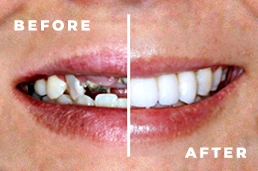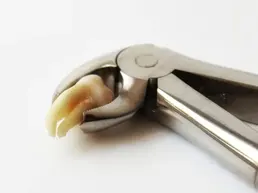How Bruxism Is Damaging Your Smile
You may not know the clinical term "bruxism," but you've probably caught yourself clenching your jaw or grinding your teeth at some point in your life. However, when it becomes frequent or severe, it's time to see your dentist.
Approximately one-third of adults grind their teeth throughout each day. But it doesn't stop there. More than 1 in 10 people grind, gnash, or clench their teeth in their sleep. This may not seem like a big deal, but it can cause long-term dental damage when ignored.
Whether you know you're grinding your teeth or not, our team at The Dental Touch in Oakland, California, can diagnose this common problem and help you protect your oral health.
What's behind the grind
You can start grinding your teeth for several reasons. For example, if you experience bruxism during the day, it typically begins in response to emotions like stress, anxiety, or frustration. However, when bruxism occurs in your sleep, it's often associated with acid reflux, sleep apnea, or arousals.
Other causes of bruxism include:
- Some prescription medications, like antidepressants
- Health conditions like Parkinson's, epilepsy, dementia, and ADHD
- Caffeine, tobacco, alcohol, or recreational drug use
- A family history of the condition
No matter what triggers your teeth grinding, it can continue indefinitely once the habit begins.
How bruxism puts your smile at risk
The problem with bruxism is that many people grind, gnash, or clench their teeth without knowing it. Over time, this can lead to numerous dental issues, including:
- Flattened or worn teeth
- Fractured, chipped, or loose teeth
- Increased tooth sensitivity or pain
- A locked jaw that doesn't open or close properly
- Severe jaw, neck, or facial pain
And the problems don't stop with your teeth. You can also experience persistent headaches and disrupted sleep.
Fortunately, we can help address these issues to protect your teeth and relieve your symptoms.
Life with bruxism
As we mentioned earlier, bruxism often continues indefinitely, so there isn't necessarily a cure. However, we can provide dental interventions to help protect your teeth against additional damage and ease any jaw pain or discomfort.
The first step in diagnosing bruxism involves a dental exam. During your appointment, we look for signs of the condition and take X-rays to gauge the extent of damage to your underlying bone and cheek tissue. Then, we try to determine what's behind your teeth grinding.
If we suspect your bruxism is due to sleep apnea, we offer the STATDDS Bruxism Monitor and Home Sleep Test. This screening system is the first home testing device that can accurately measure teeth grinding, sleep apnea, and snoring. Plus, you do it in the comfort of your own home and get your results the very next day.
Based on our diagnosis, we could recommend several dental treatments. To protect your teeth moving forward, we often recommend splints or mouthguards. These custom-made devices keep your teeth separated by covering your upper or lower teeth.
If you have more severe tooth damage from bruxism, we could suggest dental restorations to restore their structure, appearance, and function.
Do you grind your teeth? Don't put your smile at risk. Contact The Dental Touch to schedule an appointment by calling 510-328-7799 or booking online today.

















